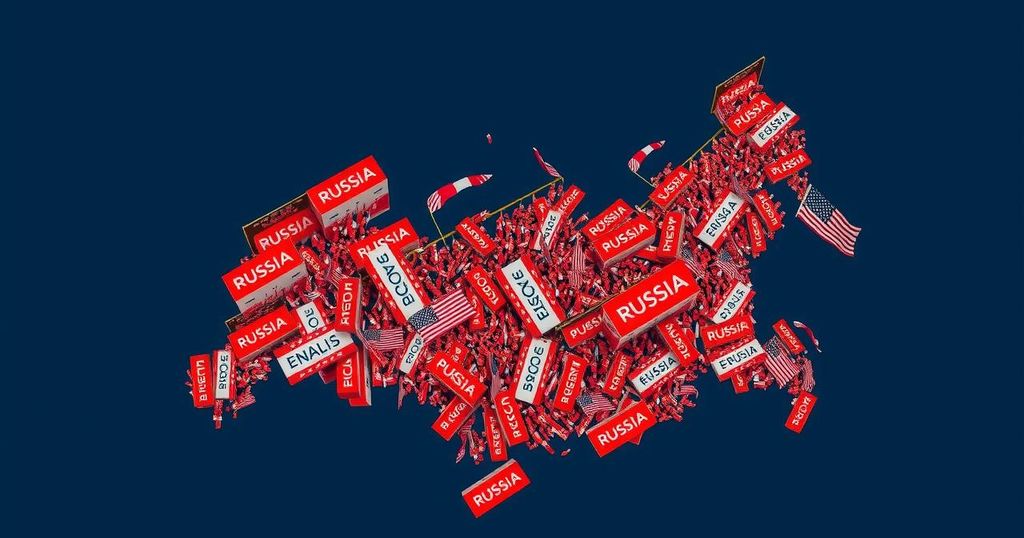Moldova’s Election Results Amid Russian Interference Claims: A Geopolitical Analysis

Moldova’s pro-EU President Maia Sandu claimed victory amid claims of intense Russian interference aimed at undermining the electoral process. Russian officials have disputed the results, alleging manipulation favoring Sandu, while Moldova accuses Moscow of orchestrating disinformation campaigns. With parliamentary elections on the horizon, the prospect of additional Russian meddling looms large, complicating Moldova’s path towards closer ties with the EU.
As Maia Sandu, the pro-European President of Moldova, celebrated her narrow victory in the recent presidential election, she faced allegations of significant interference from Moscow. Sandu garnered 55% of the votes against her opponent, Alexandr Stoianoglu. In the aftermath, Russian officials criticized the election results, claiming that the voting process was manipulated to favor Sandu, particularly alleging favoritism towards the expatriate voting demographic, which overwhelmingly supported her. Russian Deputy Speaker Konstantin Kosachev expressed discontent over what he termed a “disgraceful organization” of the election, suggesting that the Moldovan government facilitated voting opportunities for those living in Europe more than for Moldovans residing in Russia. Similarly, Andrey Klishas, another high-ranking Russian official, insinuated that the overseas vote was tampered with to ensure Sandu’s victory. Moldova has accused Russia of orchestrating a campaign of disinformation and various forms of electoral meddling, especially during a recent referendum to solidify the country’s commitment to EU membership. Despite Russian denial of these accusations, its motives remain clear, as Moscow seeks to install a sympathetic government in Chisinau to stymie Moldova’s EU aspirations. The presence of Russian troops in the breakaway region of Transnistria further complicates this geopolitical landscape, with fears that Russia may exploit local grievances to justify intervention, reminiscent of actions taken in Ukraine. In light of Sandu’s victory, U.S. President Joe Biden stated, “Russia failed” in its attempts to destabilize Moldova’s democracy. However, with parliamentary elections approaching, there is an impending challenge for Sandu to unite the country and disarm any potential for further Russian interference. Meanwhile, Ukraine expressed relief at the election outcome, reinforcing intentions to collaborate closely with Moldova amidst increasing regional tensions.
This article examines the implications of Moldova’s recent presidential election, particularly focusing on Russian interference and the geopolitical stakes involved. Moldova has been navigating a complex relationship with Russia and the European Union, with recent events showcasing Moscow’s attempts to influence the electoral process in favor of pro-Kremlin candidates. The upcoming parliamentary elections create an environment ripe for further Russian meddling, increasing the stakes for both Moldova and its neighbors, especially given the ongoing conflict in Ukraine and the presence of Russian military power in the region.
In conclusion, the recent presidential election in Moldova reflects ongoing tensions between pro-European aspirations and Russian influence. Maia Sandu’s victory, while a success for Moldova’s democratic process, is overshadowed by concerns over electoral integrity and potential Russian retaliation. Both the domestic political landscape and the broader regional security dynamics pose challenges ahead, necessitating vigilance and support from Western allies to safeguard Moldova’s democratic future and territorial integrity.
Original Source: www.cnn.com








